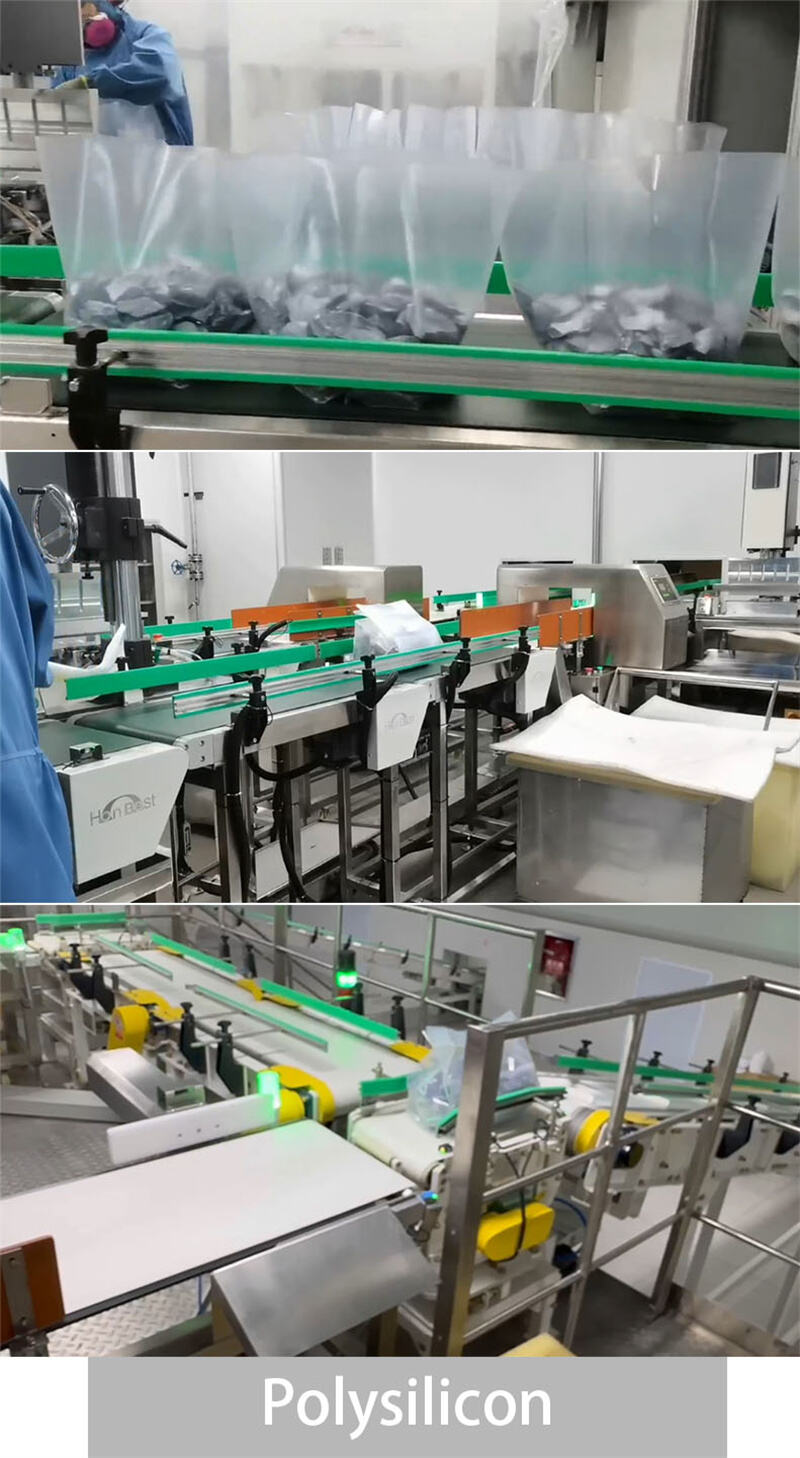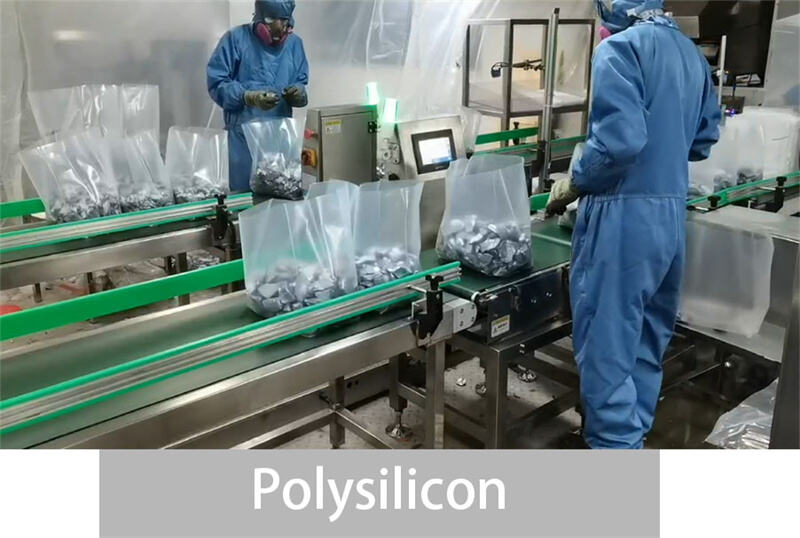Renewable Energy
New energy souces (e.g., solar, wind, hydrogen) and renewable energy (e.g., hydropower, biomass) are progressively replacing fossil fuels, becoming the cornerstone of the global energy transition. Among them, polysilicon serves as the foundational raw materials in the solar photovoltaic industry, directly impacting the efficiency and cost of PV modules. Its importance is comparable to that of oil in traditional energy systems.
As a key material for both PV and semiconductor industries, polysilicon’s quality significantly influences solar cell conversion efficiency and semiconductor chip performance. Metal impurities - such as iron (Fe), copper (Cu), nickel (Ni), and aluminum (Al) - can severely degrade silicon’s electrical properties. Thus, strict metal contamination control is imperative, typically enforced through metal detection equipment at two critical production stages:
Raw Material Inspection - Detecting metal residues in metallurgical-grade silicon to prevent contamination during refining.
Final Product Testing - Verifying the purity of silicon blocks or ingots to ensure compliance with industrial standards.
By implementing rigorous metal detection, manufacturers safeguard high-performance solar cells .

For quality assurance and logistics efficiency, packaged silicon blocks must adhere to strict weight specifications. Automated weighing systems are employed to:
Detect deviations (underweight or overweight blocks)
Ensure batch consistency for downstream processing.
Prevent losses from incorrect loading or materials waste.

We can provide both solutions.
Contact us now!
Dongguan Coso Electronic Tech Co., Ltd.














































